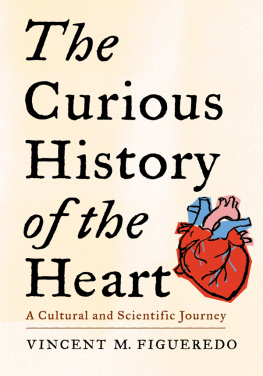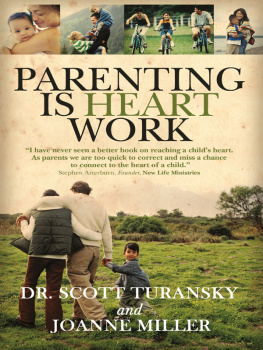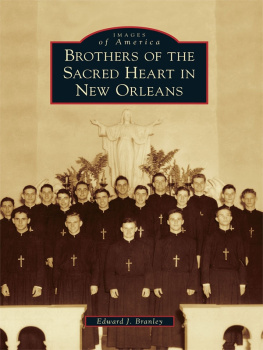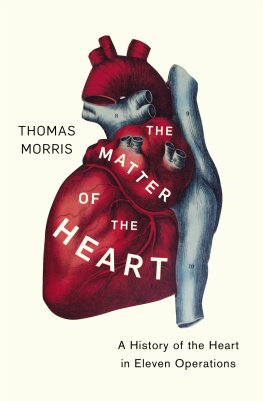
T HE S UBLIME E NGINE

T O OUR PARENTS , B ILL AND B ESS
Contents
Introduction
I magine that you are a primitive. You have just clawed your way to the top rung of the evolutionary ladder. You have achieved humanity. Your mind is developing a capacity for the self-consciousness that will be your defining characteristic as a member of the species Homo sapiens. You are aware of yourself as being distinct from others, with private thoughts and complex relationships with those around you. You have a self.
You lie in your cave after a long days hunting. Although you do not yet possess anything that could be called language, you find yourself able to string together connected thoughts. As night comes and sleep approaches, you use this new awareness to take stock of your body, perhaps probing a bruised limb or savoring the taste of recent food. And then, in the dark silence, a terrible and awe-inspiring realization strikes you. It is something you have never before noticed in your grueling daily quest for simple survival.
There is something alive inside you.
Right there, pulsing beneath your ribs. It hammers out a steady rhythm that reverberates through your musculature. If you touch your neck or your wrist or your leg, you can feel its report. It is as if a small but powerful beast has lodged inside your [page_x]chest. The realization excites and frightens you. With this surge of emotion, the beast responds by quickening its activityas if it senses your fear.
For the next few days, you go about your routine. You have no choice. You must, after all, survive. But it is always there, as you hunt and feast and rest, this churning presence inside your ribs. Speeding up sometimes, slowing down in other situationsbut never resting, not for an instant. In the middle of the night, when everything else is quiet, it can be as loud as thunder.
And then, in a moment as terrible and wonderful as when you first became aware of this pulsing creature, you understand something else. This is no foreign body. This is no predatory stranger trapped within your bones. It is part of you. It is you. The center of that individuality you have only recently understood. You have discovered yourself. You have discovered your heart.
F OR as long as we have been self-aware, we have been in awe of the fact that there is something so vital, so alive, within our bodies: a relentlessly active core with a will of its own. An animating essence that does not obey our commands the way our hands do, or our eyelids, or even our lungs. A link to the universal motion surrounding us, the tides and stars and winds, with their puzzling rhythms and unseen sources. Once this awareness dawned, it would have been impossible for us ever again to look at ourselves or the world the same way.
The heart is a mystery and a miracle. It beats roughly every second of our livestwo and a half billion times during an average lifespan. It does not rest, pumping around seventy-four gallons of [page_xi]blood every hour once we become adults. Although it weighs only about fifteen ounces, it is immensely strongthe amount of energy it generates in a single day could drive a car twenty miles.
And it can stop at any moment. It can stop when we are newborn babies asleep in the crib or when we are healthy teenagers walking off the practice field on a sultry August afternoon. It can arrest when we are shoveling snow in our middle age or when we are a hundred years old and our minds have been swept of memory for a decade. The heart is the ultimate arbiter of our lives. When it calls time, the game is over.
What follows is a biography of this remarkable machine. Although one of the authors is a cardiologist, it is not a medical history, despite the fact that science plays a key role in the story. And while the other author is a novelist and critic, it is not a cultural study, though works of literature, art, and film are also significant elements in the book. Nor is it fiction, though some of the stories told here are so dramatic that they will be presented in narrative form in order to fully capture the power they can wield over our imagination.
Rather, this book is an account of the different ways that we have thought about the heart ever since it first took root in the Western imagination. Whether it causes a scientist to investigate the origins of the pulse, or inspires a poet to wonder what makes that pulse race faster when he sets eyes on his beloved, the cardiac muscle has always been the object of passionate inquiry. The Sublime Engine is the history of that passion. The authors have, in the interest of focus and space, confined this biography to the Western tradition, although there is a rich tradition of interest in the cardiac organ in other cultures, from the elaborate [page_xii]pulse lore of traditional Chinese medicine to the Nadi Vijnana pulse science of the Indian subcontinent; from Babylonian creation myths to the bloodthirsty heart sacrifices of the Aztecs.
Stories lie at the center of this biography. The heart is filled with more than just the blood it pumps. It is also the source of a vast supply of stories. They flow through it; they echo around its chambers. Some of these stories are historical, capturing the people whose insights and experiments have furthered our understanding of the cardiac muscle. Pioneers like Hippocrates, who turned his back on superstition and magic to create the practice of medicine, which would eventually allow us to know and even control the organ beating in our chests. Or Werner Forssmann, the young German intern who defied received wisdom by inserting a catheter into his heart at a time when most of his colleagues thought such a procedure would cause certain death. Or the unassuming Minnesota surgeon C. Walton Lillehei, who stitched the circulatory systems of his young patients to those of their parentseffectively using the latter as heart-lung machinesin a bold attempt to save the lives of doomed children. Or Ren Lannec, the musically trained Parisian physician who first heard the symphony of heart sounds by rolling up a stack of paper and placing it against a shy female patients chest. And then there is the greatest genius of them all, Sir William Harvey, the personal physician to two kings, who forever changed the way we think about the heart by simply placing a finger on his forearm. By telling the tales of these adventurers, we can begin to illustrate the vastness and wonder of the territory they explored.
Some of the hearts stories are anatomical. Because the living cardiac muscle is always in motion, its every beat is a kind of [page_xiii]story, with a beginning, a middle, and an end. Nature provides nothing more dramatic than the motion of the heart. Everything about it has the dynamism of a good narrative. The way a red blood cell can be propelled through the circulatory system in about the time it takes an Olympic athlete to run 200 meters. Or how white blood cells will aggressively attack plaque in a coronary artery, shutting down the blood supply to the heart muscle and leading to that most terrifying of bodily eventsthe heart attack. And then there is the way the heartbeat itself is formed, a delicate dance of electrically charged sodium, potassium, and calcium ions as they pass back and forth through specialized channels in the heart cells membrane. Or how, after years of reliable thumping, that steady beat can, without warning, dissolve into a riot of utter chaosfibrillationthat can kill the hearts owner in a matter of minutes.
Next page








